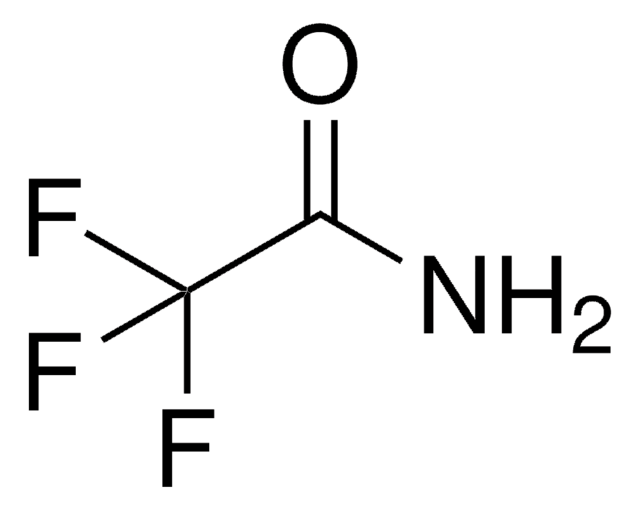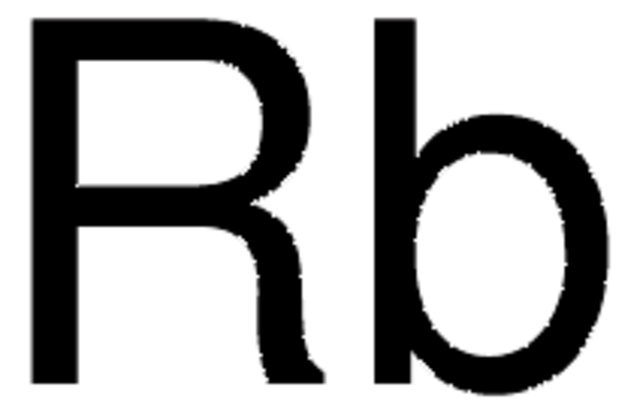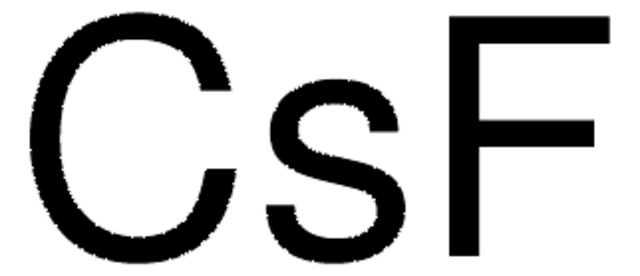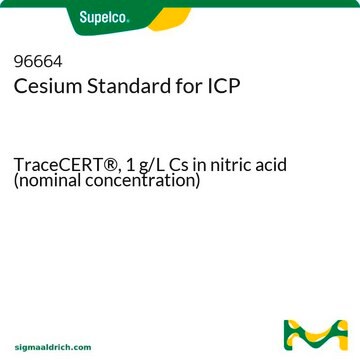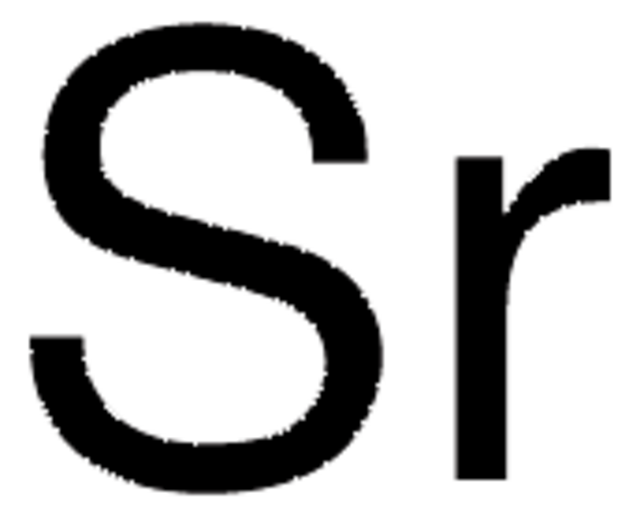239240
Cesium
ingot, ≥99.95% trace metals basis
Synonym(s):
Caesium
Sign Into View Organizational & Contract Pricing
All Photos(1)
About This Item
Empirical Formula (Hill Notation):
Cs
CAS Number:
Molecular Weight:
132.91
EC Number:
MDL number:
UNSPSC Code:
12141801
PubChem Substance ID:
NACRES:
NA.23
Recommended Products
vapor pressure
1 mmHg ( 279 °C)
Quality Level
Assay
≥99.95% trace metals basis
form
ingot
reaction suitability
reagent type: reductant
packaging
pkg of Packaged in: Breakseal Ampule
resistivity
19 μΩ-cm, 0°C
bp
705 °C (lit.)
mp
28.5 °C (lit.)
density
1.873 g/mL at 25 °C (lit.)
SMILES string
[Cs]
InChI
1S/Cs
InChI key
TVFDJXOCXUVLDH-UHFFFAOYSA-N
Looking for similar products? Visit Product Comparison Guide
General description
Cesium(Cs) is a highly reactive alkali metal known for its unique properties its uniqueproperties, such as a low melting point and high atomic mass, which enhance itsexceptional conductivity and reactivity. Its compounds, particularly cesiumlead halide perovskites, are extensively utilized in next-generation solarcells to achieve high efficiency and stability. Additionally, cesium isutilized in electron emission devices and photonic technologies.
Application
- Cesium-containing triple cation perovskite solar cells: improved stability, reproducibility and high efficiency: Demonstrates how adding cesium to perovskite solar cells improves their stability and efficiency, making a significant advancement in solar technology (M Saliba et al., 2016).
- Exotic stable cesium polynitrides at high pressure: Explores the formation of new cesium polynitrides under high pressure, indicating potential applications in high-energy-density materials (F Peng et al., 2015).
Signal Word
Danger
Hazard Statements
Precautionary Statements
Hazard Classifications
Skin Corr. 1B - Water-react 1
Supplementary Hazards
Storage Class Code
4.3 - Hazardous materials which set free flammable gases upon contact with water
WGK
WGK 3
Flash Point(F)
Not applicable
Flash Point(C)
Not applicable
Personal Protective Equipment
dust mask type N95 (US), Eyeshields, Gloves
Choose from one of the most recent versions:
Already Own This Product?
Find documentation for the products that you have recently purchased in the Document Library.
Customers Also Viewed
Mao-sheng Miao
Nature chemistry, 5(10), 846-852 (2013-09-24)
The periodicity of the elements and the non-reactivity of the inner-shell electrons are two related principles of chemistry, rooted in the atomic shell structure. Within compounds, Group I elements, for example, invariably assume the +1 oxidation state, and their chemical
Dahu Ding et al.
Water research, 47(7), 2563-2571 (2013-03-14)
A novel biosorbent derived from agricultural residue - walnut shell (WS) is reported to remove cesium from aqueous solution. Nickel hexacyanoferrate (NiHCF) was incorporated into this biosorbent, serving as a high selectivity trap agent for cesium. Field emission scanning electron
Jun Koarashi et al.
Scientific reports, 2, 1005-1005 (2012-12-21)
The fate of (137)Cs derived from the Fukushima nuclear accident fallout and associated radiological hazards are largely dependent on its mobility in the surface soils of forest ecosystems. Thus, we quantified microbial and adsorptive retentions of (137)Cs in forest surface
Min Lu et al.
Proceedings of the National Academy of Sciences of the United States of America, 110(6), 2099-2104 (2013-01-24)
Multidrug transporters belonging to the multidrug and toxic compound extrusion (MATE) family expel dissimilar lipophilic and cationic drugs across cell membranes by dissipating a preexisting Na(+) or H(+) gradient. Despite its clinical relevance, the transport mechanism of MATE proteins remains
R W Leggett et al.
The Science of the total environment, 317(1-3), 235-255 (2003-11-25)
A physiologically descriptive model of the biological behavior of cesium in the human body has been constructed around a detailed blood flow model. The rate of transfer from plasma into a tissue is determined by the blood perfusion rate and
Our team of scientists has experience in all areas of research including Life Science, Material Science, Chemical Synthesis, Chromatography, Analytical and many others.
Contact Technical Service